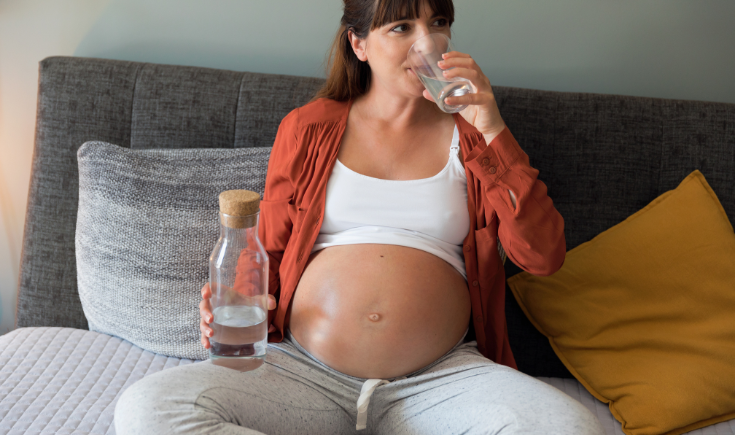

Iron is a micronutrient essential for overall health and wellbeing. It is especially important in pregnancy and the postpartum period, meaning that iron supplementation is sometimes necessary. It plays a vital role in immune function, muscle strength, mental function, and energy levels of the expectant mother and developing baby. Iron is a key component of haemoglobin, the protein in red blood cells which carries oxygen to tissues and organs.
In this article, we will explore the sources of iron, the importance of iron supplementation during pregnancy, the types and dosages of supplements available, and considerations for choosing the most suitable supplement based on individual needs and medical history. Consulting with healthcare professionals is essential to determine the need for supplementation and ensure a healthy pregnancy and postpartum period.
Iron supplementation in pregnancy and the postpartum period
Where do our bodies get iron from?
Our bodies can store iron but cannot make it, instead we get iron from our diet. Dietary iron comes in two forms, haem iron is found in animal-based foods like lean red meat and chicken, while non-haem iron is present in plant sources such as leafy green vegetables, wholemeal bread, iron-fortified breakfast cereals, legumes, and eggs. Haem iron is better absorbed than non-haem iron and vegetarians need to consume about 80% more iron to meet their daily requirements.
Pregnancy and iron requirement
Women of reproductive age have a high daily iron requirement of 18 mg/day. When pregnant, the body needs to produce additional blood and nutrition to support the growing baby therefore the daily iron requirement is further increased to 26 mg/day. It is often challenging for women to keep up with this higher iron requirement so iron deficiency in pregnancy is not uncommon.
Why is iron deficiency important?
Iron deficiency can have adverse effects that can be especially troublesome in pregnancy. Some women may feel fatigued, faint, experience sleep difficulties, cognitive dysfunction and impaired immune function. In severe cases, iron deficiency anaemia may develop (a low level of red blood cells) which can lead to adverse pregnancy outcomes for both mother and baby. If you do have confirmed iron deficiency it is important to consult your healthcare professional to consider other important medical causes and to discuss management.
Supplements during pregnancy and the postpartum
Iron supplements are not recommended for all pregnant women. If a blood test confirms iron depletion or deficiency, iron supplementation may reduce the risk of preterm birth and improve the general health and wellbeing of the expectant mother and reduce symptoms. Supplementation may also be important for women who have inadequate dietary intake, or after childbirth if the mother experienced a significant postpartum haemorrhage (heavy blood loss).
Supplement types, dosage and how to take
For pregnant women with low iron levels but no anaemia, a low dose of elemental iron is recommended, e.g. 20–60 mg daily or every second day. Many commercial pregnancy multivitamins already contain this low dose of iron.
Pregnant women with anaemia due to iron deficiency should take a higher, therapeutic dose of elemental iron under the supervision of their healthcare provider. These higher doses (100–200 mg elemental iron) increase a protein called hepcidin that persists for 24 hours and blocks iron absorption, therefore high dose supplements absorb best and are often better tolerated when given on alternate days. Most iron supplements are recommended to be taken on an empty stomach with a glass of water or juice, at least one hour before or two hours after a meal or at night time.
What iron supplement should I take?
There are many iron preparations available and the amount of iron in these tablets or liquids can vary greatly. The choice of supplement depends on your iron storage levels, your medical history and your diet. Iron also commonly causes side effects such as nausea, constipation and gastrointestinal discomfort. This can be minimised by using a lower dose, alternate day dosing, or by trialling a different supplement or form of elemental iron. Some women do not tolerate oral iron and may consider having an iron infusion, where it is given intravenously through a drip into your vein. This should be discussed with your treating obstetrician or antenatal care provider.
Summary
While not all pregnant women require iron supplementation, women with iron deficiency anaemia, low iron storage levels or inadequate dietary iron intake could consider and may benefit from iron supplements. It is important to consult with your healthcare professional to determine if you need supplementation and to discuss the appropriate form and dosage for your individual needs.























